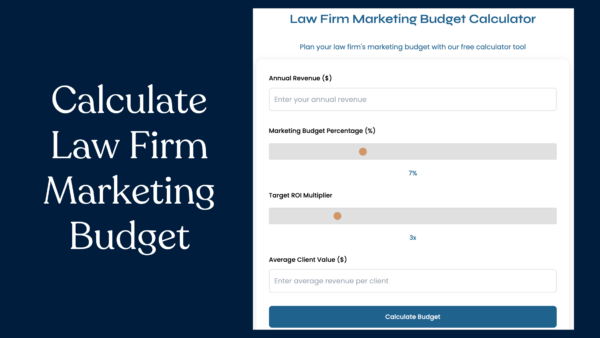Best PPC Strategies for Divorce Lawyers
Why PPC Advertising is Critical for Divorce Lawyers Divorce is often one of the most emotionally and financially sensitive legal matters — and potential clients usually search online before reaching out to a lawyer. With the high cost of client acquisition in family law and fierce competition in local markets, running a smart, well-targeted PPC (Pay-Per-Click) campaign can be a game-changer. Divorce lawyers can use Google Ads to attract high-intent leads right when people are searching for urgent legal help. But unlike eCommerce or general services, family law requires a personalized, strategic approach to PPC. In this post, the legal marketing experts at YMM Digital break down the most effective PPC strategies for divorce lawyers to generate quality leads while optimizing ad spend. 1. Why Google Ads Works for Divorce Lawyers When someone types “divorce lawyer near me” or “custody attorney,” they’re not browsing — they’re looking for immediate help. Google Ads allows you to be present at that exact moment of need, and unlike SEO (which takes time), PPC delivers immediate visibility. Benefits: Reach people actively seeking legal help Geo-target ads to your service area Control budget and targeting in real time Showcase trust factors like reviews, availability, and specialties 2. High-Intent Keywords for Divorce Campaigns Effective PPC starts with smart keyword strategy. Target high-converting, localized, and service-specific keywords. Top Keywords: Keyword Intent Avg. CPC Divorce lawyer near me High $70–$110 Child custody attorney [City] High $80–$130 Uncontested divorce lawyer Medium $65–$100 Family law attorney [City] High $75–$115 Affordable divorce attorney Cost-focused $60–$90 LSI Terms to Include: spousal support alimony lawyer family court lawyer legal separation attorney child visitation rights Use keyword grouping by service (e.g., custody vs divorce) for separate ad groups. 3. Hyperlocal Targeting Techniques Divorce is deeply personal — and geography matters. Instead of broad campaigns, focus on neighborhoods, suburbs, or counties your firm serves. Examples: 10-mile radius from your office Target zip codes with high divorce rates Bid higher for urban areas where competition is dense For best results, combine location targeting with local SEO strategies. 4. Writing Effective Divorce-Focused Ad Copy Emotionally resonant, trust-building ad copy works best in family law. Here’s a proven formula: Ad Copy Formula [Legal Need] + [Location] + [Trust Signal] Example:Headline: “Top Divorce Lawyer in Phoenix”Description: “20+ Yrs Experience. Free Case Evaluation. Protect What Matters Most.” Best Practices: Speak to the client’s pain point Offer free consultation or flexible payment options Use trust elements: “5-Star Rated,” “Former Judge,” “Board Certified” 5. Landing Pages That Convert in Family Law PPC ads should never point to your homepage. Instead, use custom divorce landing pages built to convert. Must-Have Features: Headline matching the ad (e.g., “Trusted Divorce Lawyer in Dallas”) Emotional and professional imagery Multiple contact options (phone, form, chat) Client testimonials Fast loading, mobile optimized Want help designing these? See our website design services for lawyers. 6. Ad Extensions That Boost Clicks Use every inch of real estate on the search results page. Recommended Extensions: Call Extension: Enable 1-click calling Location Extension: Show map and address Sitelinks: Link to specific services (e.g., “Custody,” “Uncontested Divorce”) Callouts: “Available 24/7,” “Female Attorney Available,” “Flexible Payment Plans” 7. Bidding & Budget Optimization Tips You don’t need to outspend competitors — you need to outsmart them. Bidding Strategy: Start with “Maximize Conversions” for fast data Once conversions stabilize, switch to “Target CPA” Use dayparting to focus on high-intent hours (6–10 AM, 6–9 PM) Budget Tips: Minimum $2,000/month for medium markets Allocate more toward custody and contested divorce terms Exclude areas with low ROI or irrelevant leads 8. Tracking, Analytics & Retargeting Divorce cases often involve multiple touchpoints. Proper tracking helps attribute leads and optimize over time. Track: Click-to-call actions Form fills Appointment bookings Chat interactions Use Google Tag Manager + CallRail. Set up remarketing to stay top of mind for undecided clients. 9. Avoiding Common PPC Mistakes in Divorce Law 🚫 No city in keyword (e.g., just “divorce lawyer”)🚫 Sending all traffic to homepage🚫 Not using call tracking🚫 Ignoring ad extensions🚫 Using only one ad copy variation Working with a legal marketing agency like YMM Digital ensures your campaigns avoid these pitfalls. 10. Divorce PPC Checklist ✅ Divorce PPC Launch Checklist Step Status Set up conversion tracking ✅ Group keywords by service ✅ Write 3+ ads per ad group ✅ Use location targeting ✅ Build landing pages by service ✅ Add all extensions ✅ Monitor conversions weekly ✅ 11. FAQs Q1: How long does it take to get leads with PPC?You can get leads within the first week, but meaningful optimization takes 3–6 weeks. Q2: Should I run Google Ads or Facebook Ads for divorce?Google Ads is best for intent-driven traffic. Facebook can help with retargeting and awareness. Q3: How much should I spend monthly?Most divorce firms spend between $5,000–$7,500/month depending on location and goals. Q4: What’s the biggest mistake divorce lawyers make with PPC?Sending ads to generic pages and failing to track conversions. Q5: Do I need separate landing pages for each service?Yes — this boosts Quality Score, relevance, and conversion rates. 12. Why Choose YMM Digital for Divorce Lawyer PPC At YMM Digital, we specialize in digital marketing for lawyers — including PPC, SEO, and web design. Our team knows how to write copy that resonates, target the right audience, and optimize campaigns for real results, not just clicks. 👉 Get a Free PPC Audit Today👉 Explore Our Google Ads Services for Lawyers👉 View All Blog Posts











